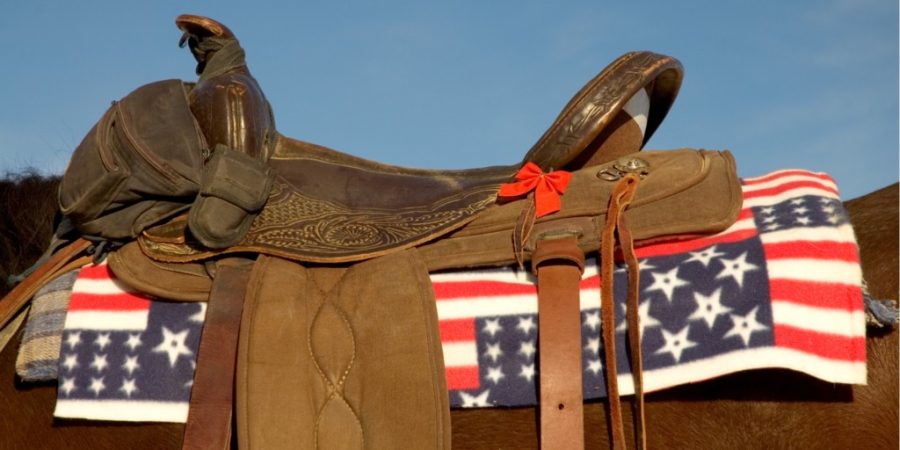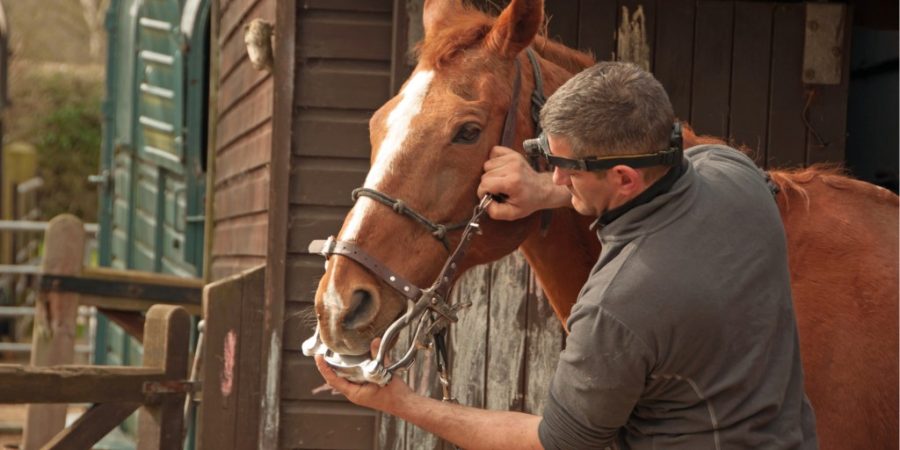
When you think of evidence-based addiction treatment, a drug rehab with horses may not be the first thing that comes to mind. But there is compelling evidence that equine-assisted therapy, also known as equine therapy or horse therapy, can do a lot of good in helping veterans recover from the underlying causes of substance abuse. In fact, the benefits of equine therapy go beyond substance abuse treatment and may also benefit veterans living with depression, anxiety, and PTSD.
Of course, it’s natural to still have questions about how equine-assisted therapy works. Keep reading to learn how a veteran drug rehab with horses could be the unexpected solution to your struggles with addiction.
Table of Contents
What Is Equine-Assisted Therapy?

At Heroes’ Mile in DeLand, Florida, our equine therapy program is facilitated by mental health experts working at our veteran drug rehab. And since many of our clinical staff are also veterans in recovery, they have a firsthand understanding of what quitting drugs and alcohol is like as a veteran. This familiarity encourages empathetic support that makes all the difference when veterans are getting sober.
Our highly trained staff uses this common ground as a starting point for recovery, and that feeling of support is the basis for equine therapy. These experts will guide you through equine therapy practices, including feeding the horses, grooming them, and engaging in therapeutic riding.
Working with horses may not be the most obvious addiction treatment, but there is real evidence that a drug rehab with horses can make a difference. For example, in therapeutic riding, there is an exchange between rider and horse where both parties gain a sense of balance and of self-reliance. Riding a horse is a physical challenge, so finding that coordination and strength can be a deeply rewarding process.
Moreover, spending time feeding and grooming horses also has a positive impact on veterans quitting drugs and alcohol. By re-learning how to care for another creature, it becomes easier to care for yourself and make your well-being a priority. The current body of research suggests that horse therapy can make a substantial difference in outcomes after substance abuse treatment.
So horse therapy can make veterans feel better. But does that really mean that a drug rehab with horses can work?
How Does a Drug Rehab with Horses Work?
The first thing to know is that equine-assisted therapy is a supplemental treatment. It can be a great asset during recovery, but it cannot replace veteran rehab programs like medical detox or treatment options like peer-to-peer group therapy. That said, a drug rehab with horses offers many advantages over one without equine therapy.
Namely, equine therapy has been shown to reduce PTSD symptoms. And that’s a big deal, because many veterans start using alcohol and drugs to cope with PTSD and other invisible wounds of war. This happens because veterans often find themselves with new burdens upon returning home from service. And without adequate support, many veterans find that the only way to manage their PTSD symptoms is to turn to substance abuse.
By addressing these underlying issues, a drug rehab with horses can help treat substance use disorders at their roots. Where a traditional rehab might focus solely on addiction, a quality veteran rehab must also consider the circumstances that led to addiction being developed. And equine-assisted therapy aids veterans in overcoming PTSD and other issues by developing key skills, including:
- Stress management
- Development of self-confidence
- Relationship building skills
- Improved ability to trust in others
In addition to these essential skills that address the root causes of addiction, horse therapy also helps veterans commit to their recovery. Staying sober is a lot of work, especially in the long term. But by learning to commit to caring for another creature every day, individuals can learn to give themselves that same kind of dedicated support. In this way, a drug rehab with horses helps veterans develop healthy practices where they learn to look after themselves.
At our Florida veteran rehab, we hold equine-assisted therapy once a week under the guidance of a doctor of psychology and a licensed mental health counselor. During this time, veterans work with the horses and mental health experts to work on crucial skills for their own recoveries.
The Heroes’ Mile Difference

Our veteran alcohol and drug rehab with horses is a safe, supportive environment where veterans can focus on their recovery. And while we proudly offer equine therapy as an evidence-based supplemental therapy, that is far from the only way we help veterans overcome addiction. During our residential rehab for veterans, you will engage with many other therapeutic activities, including:
- Veteran-focused individual therapy
- Art therapy
- Eye movement desensitization and reprocessing (EMDR) therapy
- Nutritional support
Addiction scientists agree that a multi-faceted approach is the best way to treat a substance use disorder. And with a variety of programs specifically tailored to the veteran population, we know that you will find the support that you need to get and stay sober.
But addiction treatment does not only benefit from a complex approach; longer time spent in treatment can also improve recovery outcomes for veterans. That’s why our drug rehab with horses proudly offers a complete continuum of care from drug and alcohol detox to residential rehab to outpatient support for veterans.
Are you ready to start addiction treatment? Or do you have more questions about our drug rehab with horses? For more information or to get started in the enrollment process, call our admissions specialists at 888-838-6692 or ask your questions through our confidential contact form. The hardest step on the path to recovery is the first one, but we’re here to help you start your recovery journey.
The post Veteran Drug Rehab with Horses appeared first on Heroes’ Mile Veterans Recovery Center.
Source
Original Author: Heroes’ Mile

